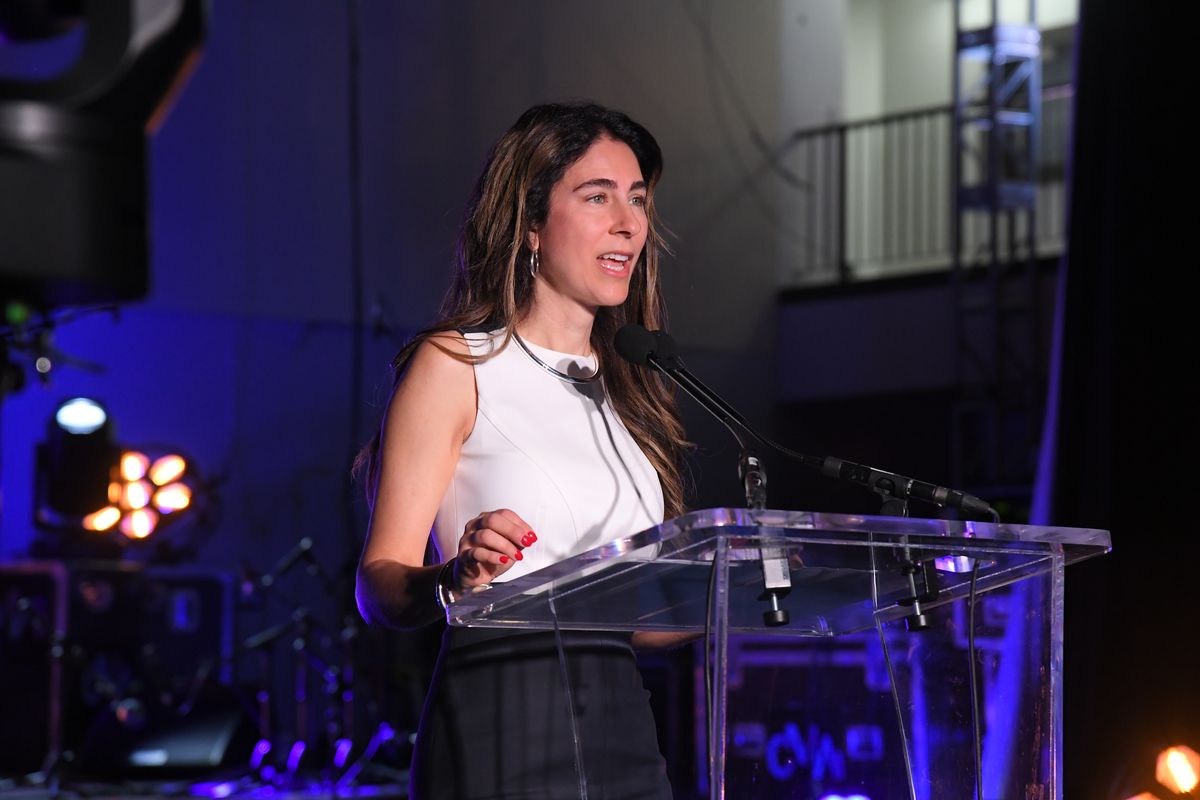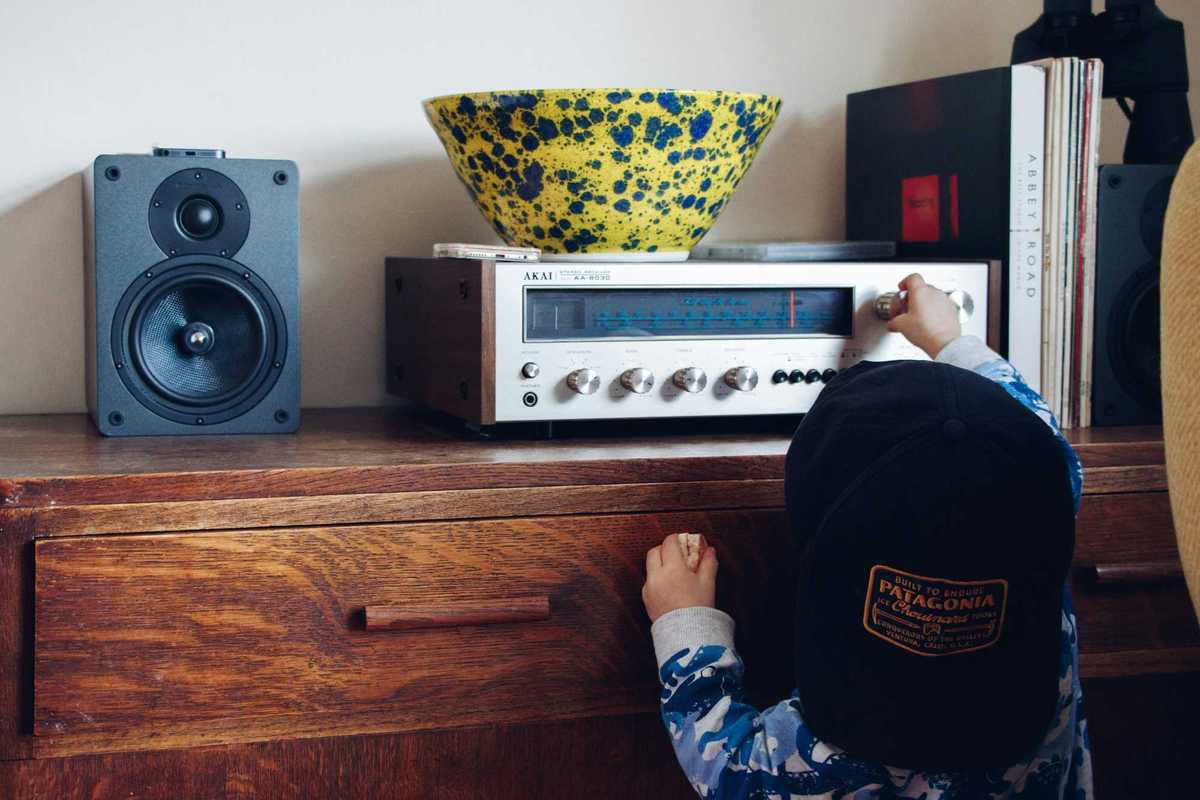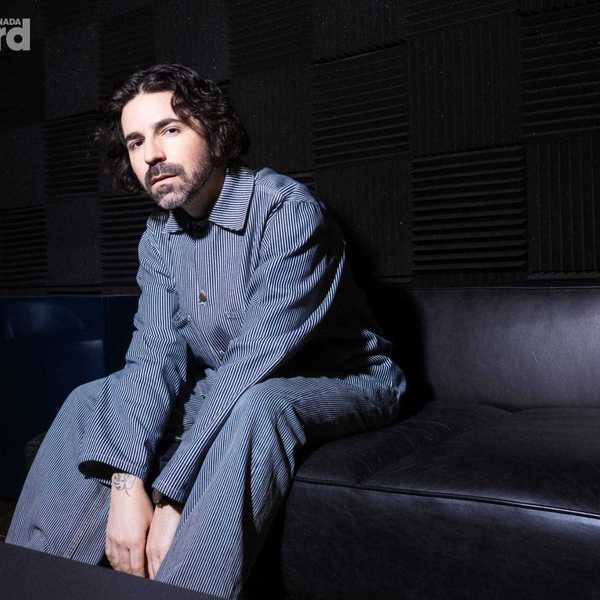Radiodays North America 2024 Projected The Future of Canadian Radio During a Tense Time
This year's radio conference, part of Canadian Music Week, delved into the promise and challenges of A.I., consolidation and dwindling resources, and featured breaking news from CRTC Chairperson Vicky Eatrides on Canada's Online Streaming Act.

CRTC Chairperson Vicky Eatrides at Radiodays North American/Canadian Music Week 2024
RADIO! The medium still has a magical aura to it, despite constant doomsday predictions of its imminent demise as well as some corporate owners cutting staffs and resources to the bone.
Radiodays North America 2024 was held at Toronto’s Westin Harbour Castle Hotel June 2 to 4 as part of Canadian Music Week (CMW). From podcasts to TikTok, the impact of cars to a real-time demonstration of A.I. on radio, the medium was discussed, debated and dissected.
It was a surprisingly newsy week, with CMW founder Neill Dixon announcing his retirement at the conference and CRTC Chairperson Vicky Eatrides announcing the Online Streaming Act “streaming tax” decision. At the June 4 Awards luncheon, Billboard Canada’s David Farrell was honoured with the CMW Lifetime Achievement Award (read his speech here).
Day One started with the Podcast Power Up Summit, which included nine seminars on various topics that included Why Podcasts Fail, How To Make Video Work For Your Podcasts to a discussion on How Podcasts Might Save Local Journalism.
In the last one, Erin Trafford, CEO of Story Studio Network recounted a hyperlocal podcast her company launched in North Bay, Ontario that has 25,000 regular listeners in a city with a population of just over 53,000. In Canada alone, nearly 11 million adults listen to podcasts at least once a month, which is why most broadcast companies have made podcasts an important part of their programming agendas.
Day 2 began just before 9 am with the announcement from Canadian Music Week founder and President Neill Dixon that after 42 years at the helm, he is retiring and has sold CMW (which includes Radiodays North America) to Randy Lennox’s Loft Entertainment and live entertainment developer Oak View Group.
BBC’s Director of Music Lorna Clarke then gave a keynote talk on music and radio and joined Universal Music Canada’s Executive VP and General Manager Julie Adam in a Q&A. As the session outlined, BBC is truly unique in the world of broadcasting with double digit millions listening/watching their radio/television stations, plus triple digit millions on their streaming services. Clarke told the Radiodays audience that the BBC builds long term trust relationships with musicians by working with artists and their management over many years, often even before they’ve made a name for themselves. That has allowed them to do non-traditional segments, like bringing Dua Lipa to a school of pre-teens rather than an in-studio interview.
Naturally, A.I. reared its artificial head for several sessions, including Matt Britton, Founder and CEO of Suzy’s talk on harmonizing A.I. and Gen Z. According to Britton, research has shown that a majority of Gen Z does not want A.I. voices on radio. And while Gen Z still listens to radio in the car, at home tuning is down considerably.
In a separate session, radio futurist James Cridland, editor of podnews.net, typed a few copy points into his computer, set A.I. to work and just over one minute later, had a finished commercial mixed with voice and background music. While this commercial wouldn’t win any creative awards, it’s already available to radio stations and clients worldwide. Within the time frame of 45 minutes, Zack Zalon, co-founder and CEO of Super Hi-Fi, built an entire radio station from scratch using A.I. (although he did use human voice tracks) which included music station lDs and promos. His prediction was radio stations in the future would need a lot less real estate (and more than likely, a lot less staff) using A.I.
Where there is A.I., there are questions of human labour, quality control and plagiarism. Although Zalon stated that music curation and voice tracking would (and should) remain in the hands (and voices) of humans at least for the foreseeable future, one of the slides on the screens in the room before Zalon began his demonstration read: “A.I. — everyone should be scared s**tless.”
In the What You Should Be Telling Everyone About Radio session, Gabriel Soto of U.S.-based Edison Research along with Matt Hird from Signal Hill Insights argued that “radio is still king of the car.” Streamed AM/FM stations in Canada have higher numbers than Spotify streaming, even among Gen Z, who they said have an overall positive view of radio, even if their listening numbers (outside of car tuning) have declined.
Talent coach Craig Bruce told The Inside Story of the #1 Viral Radio Moment of 2023 which came from a New Zealand radio station. “Girl Math” was a simple idea that started as just a small bit on the station’s morning show and was picked up on social media, then went viral and within a matter of days, the “Girl Math” video from the morning show had 39.9 million views and had over 800,000 shares. Bruce told the session audience that it only takes one simple idea like that to take off on social media to build and promote your brand.
One of the last sessions of the day had an amusing twist. Paige Nienaber, who’s listed in the program as “Evil Genius” (he’s really a promotion specialist), presented 20 Electrifying No/Low Budget Promotions That Will Grab People's Attention while wearing an electric shock dog collar. One member in the audience held the remote with instructions from Nienaber to zap him if he went over a minute on each promotion idea.
He did get zapped a few times, but in between, he said that if other stations in your market are all doing the same contest promotion such as giving away money. Don't do that, he said. Do something outrageous to get people talking such as putting your morning man in a block of ice in a refrigerated truck for a week and allow listeners to come and talk with him. Anytime you alter the routine of the radio station, he said, you get people’s attention.
CRTC Chairperson Vicky Eatrides began the final day with the announcement of the Online Streaming Act decision, which requires online streaming services that make $25 million or more in annual revenues and are not affiliated with a Canadian broadcaster to contribute 5% of those revenues to certain funds, including 1.5% to the Independent Local News Fund. That drew applause from the packed Frontenac ballroom. This was the first time in 25 years, that a CRTC Chair has spoken at Canadian Music Week/Radiodays North America, and it came at an important time.
Following the CRTC speech with the CRTC Chair and her staff remaining in the room, came a no-holds-barred panel discussion on The Regulatory Role In A Complex and Modernized World, moderated by former CRTC Commissioner Rita Cugini with panelists Susan Wheeler, VP Rogers Sports & Media, Doug Bingley, President Central Ontario Broadcasting, Jonathan Daniels, VP Regulatory Law, Bell Media and Steve Jones, President of Stingray Radio.
Several panelists stated that Canadian radio is too regulated, particularly in the current tough economic times, and several suggested that when the Commission adds new regulations, they should remove others. Or use incentives for stations rather than hard and fast rules. Stingray’s Steve Jones came out strongly in favour of loosening restrictions on the number of stations companies could own. The CRTC Chair and her staff certainly have something to think about for the future.

















